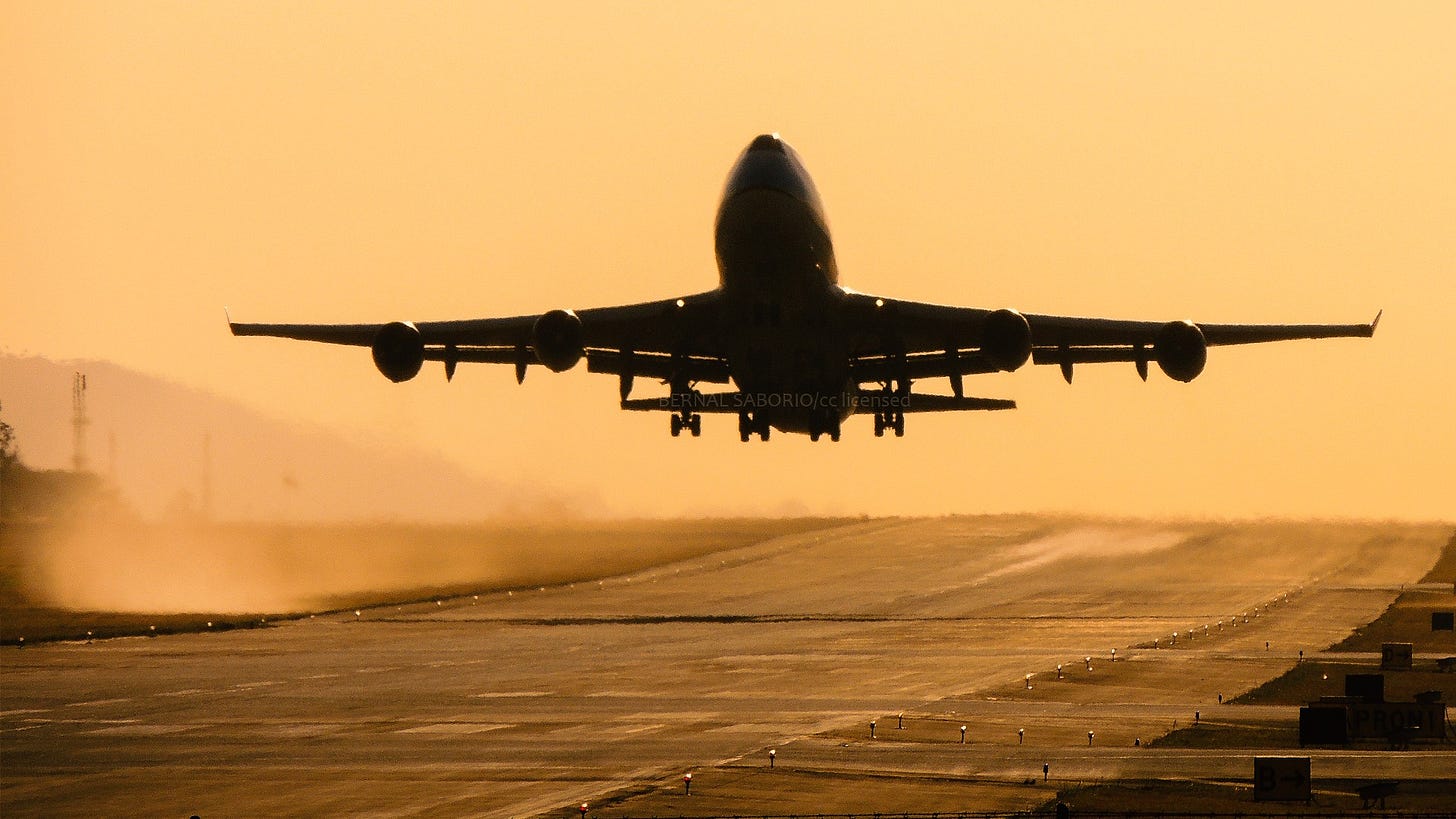Airlines' carbon goals 'critically insufficient'
Climate Action Tracker forecasts sharp increase post-Covid-19, and pokes China-sized hole in CORSIA plan

(Stephen Rae is the former Group Chief Editor of INM, Ireland’s largest online and print media group. He serves on the board of the World Association of News Publishers (WAN-IFRA) and was previously on the board of the World Editors Forum. He was appointed by the European Commission to its High Level Expert Group on Online Disinformation.)
DUBLIN (Callaway Climate Insights) — Carbon emissions targets by the airline and shipping industries were branded “critically insufficient” in the latest data released by Climate Action Tracker.
The group said emissions from the aviation sector will “rise sharply despite the impact of Covid-19.”
And the U.N. CORSIA plan to fine airlines for emissions above 2019 levels is destined to fail because it is limited to 85 countries and does not include the likes of China, Brazil, Russia or India, a briefing heard.
Silke Mooldijk of the New Climate Institute said CORSIA covers less than 50% “of international aviation emissions between 2021-2035 and is likely to allow compensation without real emission reductions elsewhere.”
Aviation currently accounts of 1.2% of global greenhouse gas emissions and it’s projected this “will double to triple between 2015 and 2050.”
On the shipping front, Climate Action Tracker said the “target of halving emissions by 2050 are insufficient and not supported by policies. Emissions will rise sharply despite the impact of Covid-19.”
Cargo and passengers ships with the right measures had the potential “to decarbonise completely and reach zero emissions by 2050,” said analyst Marie-Camille Attard. However, she warned that LNG is not a fuel “option that would support a transition to zero-carbon emissions.”
Ways of achieving carbon zero in the marine sector included the “quick turnaround” options of reducing ship speeds and shifting away from heavy fuel oils to reduce black carbon emissions.
Longer term goals should be to:
Consider a carbon tax on heavy fuel
Enforce a gradual use of low carbon fuel
Abandon LNG — as its emissions have a higher life cycle
Asked by Callaway Climate Insights what advice he would give airline CEOs facing on one hand an existential crisis and on the other the imperative to reduce GHGs, Bill Hare of Climate Action Tracker called on executives to seek more government help in sourcing alternative fuels.
“The CEOs should lobby governments to provide them with the right type of transitional support to bring the biofuel production chains to such a level that they can bring the prices dropping,” he said.
He said it was incumbent on CEOs to visibly support technologically advanced sustainable fuels.
Mooldijk, meanwhile, called on the airlines to transition much more quickly by buying more fuel efficient aircraft and parking up their older planes. “Despite Covid-19 we will be back to 2019 levels in a couple of years’ time,” she said. The airlines should be using the current space to invest in decarbonising technology. The cost to the airlines “will be more expensive the longer they wait,” she predicted.

